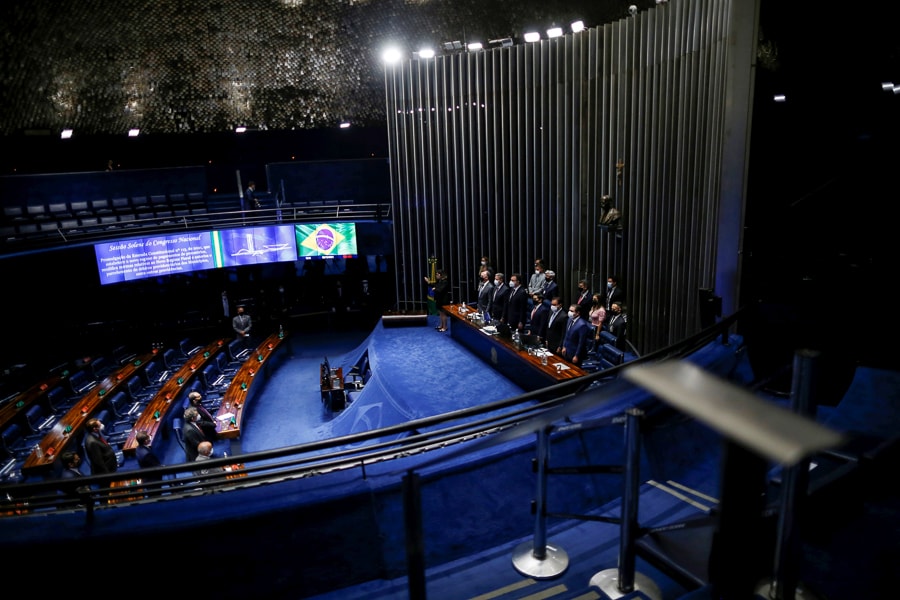Brazil approves law to regulate crypto
The Brazilian Senate approved the regulatory bill for crypto trading in a plenary session late Tuesday. The bill will be voted upon next in the Brazilian Chamber of Deputies


 Image: Adriano Machado / Reuters
Image: Adriano Machado / Reuters
A regulatory bill for crypto trading activities was introduced in the Brazilian Senate. Introduced by Senator Flavio Arns, the bill is being considered a historic move by the Brazilian government aimed at regulating the crypto market and the first step toward creating a regulatory framework for Brazil’s crypto industry.
The bill will be presented next in the Brazilian Chamber of Deputies. If it gets approved, only the executive branch will have the power to veto it, and President Jair Bolsonaro would have to sign it for it to become a law. The bill is expected to become a law by the end of 2022.
Rodrigo Pacheco, the Senate President, chaired the plenary session. He congratulated Senator Iraja in his address to the Senate “for the approval, here in the Plenary of the Senate, for this important bill." The bill’s approval followed a lengthy deliberation surrounding two bills - Senator Ribeiro’s bill and Senator Arn’s bill PL 3825/2019. Senator Iraja Abreu was the rapporteur of the proceedings.
The bill was first proposed by Aureo Ribeiro in 2015. In February, Arn’s bill had been approved by the Senate’s economic affairs committee, which had shelved two other bills by senators Styvenson Valentim and Soraya Thronicke.
If the bill gets approved, the crypto companies would be labelled as ‘virtual service providers’ and subject to the same responsibilities as other financial institutions for financial crimes against the Brazilian financial system. The Brazilian Securities and Exchange Commission’s (SEC) role would be limited to overseeing Initial Coin Offerings (ICOs). The executive branch would be given the task of formulating regulations related to crypto-assets. The branch would have the liberty to either create a new regulator or delegate the powers to the SEC or the Central Bank of Brazil.
The focus of the bill’s discussion was also on deciding on appropriate penalties related to crypto crimes and frauds. Arns proposed, “The penalties must be proportionate to the amount of value affected by this type of crime. So whoever committed a crime of US $1 billion causing damage to thousands of people would have a greater penalty than the someone who affected less value."
The Senate deliberation also involved discussion on opening up shops in Brazil to incentivise crypto miners. The senators proposed a full tax exemption on the import of ASIC mining devices into the country. The American mining company CleanSpark’s VC, Bernardo Schucman, added to the discussion that there is a need for specific regulation to encourage and protect risk-averse institutional investors who want to invest in crypto mining facilities in Brazil, South America"s largest economy.
The writer is the founder at yMedia. He ventured into crypto in 2013 and is an ETH maximalist. Twitter: @bhardwajshash
First Published: Apr 27, 2022, 18:20
Subscribe Now